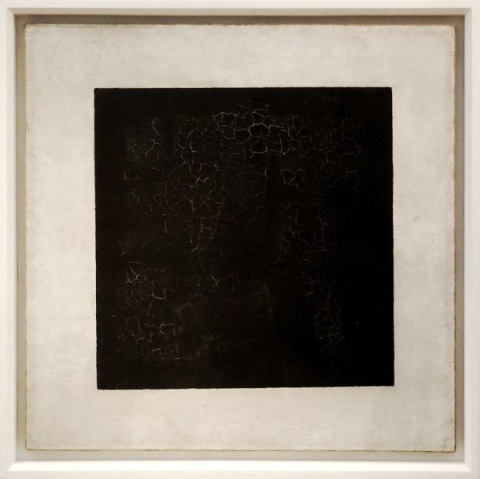
The Underground Thomist
Blog
Some Crazy Ideas Are Deadly Serious (beginning only)Tuesday, 03-28-2023
Here are the title and opening paragraphs of my new Op-Ed at The Wall Street Journal. I'm not allowed to give you the whole thing, of course, because of the paywall. Some Crazy Ideas Are Deadly SeriousSaying men can get pregnant is ridiculous. Pumping kids full of hormones is wicked. By J. Budziszewski March 27, 2023 When I tell nonacademic friends some of the things about race and sex that are commonly taught in universities today, many respond with either disbelief or giggles. You can’t be serious. Nobody can possibly believe that men can get pregnant or that Lincoln was in favor of slavery! Since I agree these are crackpot ideas, perhaps I shouldn’t carp. But when people in politics, scholarship, punditry and everyday life treat “culture wars” as unserious—or at least as less serious than other issues, like economics and foreign policy—I wonder how serious they are. ....
|
Is God a Meaningless Abstraction?Monday, 03-27-2023
Query:Is God an abstract and meaningless idea?
Reply:At first I was puzzled by your question, because it sounded as though you were asking whether God exists -- but you didn’t word it that way, and besides, I know you do believe that God exists. From previous correspondence, I suspect that you are relaying a question from skeptical acquaintances whom you aren’t sure how to answer. So I’ve given some thought to what they might mean by suggesting to you that God is an “abstract and meaningless idea.” Perhaps the difficulty is that the terms “God” and “god” are used in several different senses. Sometimes the term “god” is used for whatever it is to which someone gives his unconditional commitment. This is what we mean when we say of a greedy man, “His god is money.” There are lots of gods of this sort: Sex, Me, Power, Reputation, and so forth. Since almost anything might be someone’s “god” in the sense of unconditional commitment, I can see why someone might say that the term is meaningless. But if we ask what deserves unconditional commitment, there is only one answer, and that is the God whom we worship. Sometimes – although the term “god” itself is not often used in this way – people call themselves “religious” because they have elevated feelings. If, for example, they have feelings of awe when they look at the sky, they say they are “religious.” Since people may have elevated feelings about almost anything – from the Hubble Space Telescope to the Oprah Winfrey show -- in this sense too I can see why someone might say that terms such as “god” and “religious” are meaningless. But if the question is what ought to arouse our loftiest feelings, again there is only one answer: The Creator, whom we call God. Sometimes the term “god” is used for a being who has vast powers, like the beings of the Greek myths (or like Marvel comic book heroes). Though God is powerful, this is not what we mean by God. The “gods” of mythological were contingent beings like you and me. They didn’t have to exist; something would have had to cause them to exist. But the true God, as Christians understand Him, exists necessarily. He can’t not be. Those “gods” existed in the same way that you exist; they just had more of everything. But God is the answer to the question of why there is something and not rather nothing – why anything at all exists apart from Him. Those “gods” were products of human imagination. But there is, and can be, only one First Being. God, then, is not a meaningless abstraction, but the Being above all other beings. I can think of one more thing your acquaintances might mean in saying that God is a meaningless abstraction. They may mean that whether He exists or He doesn’t exist, it makes no difference; life goes on the same way. But if God is what Christian faith claims He is, then this is far from true: God is not only the First Cause on which all other being depends, but the First Meaning on which all other meaning depends. Apart from Him, life is absurd. He is the greatest and most praiseworthy thing. Surely something is wrong with us if we cannot admire what is infinitely greater than ourselves. Since He is the supreme and uncreated Good, we depend on Him even to put the goods of this life in right order. Without His providence, we are constantly tempted to do evil so that good will result. Without His grace, we cannot be forgiven our wrongdoing. What is impersonal cannot forgive; morality, as such, has a heart of stone. Without the same grace, we cannot be healed of our brokenness. Moral discipline can accomplish something, and that is good, but eventually it hits a wall. Without the same grace, we cannot make sense of our suffering, because we cannot offer it to be united with His sacrifice for us. Finally, even in the unlikely event that we have all this world offers, we are compelled to ask, “Is this all there is?” That which cannot be found in this world must be found out of this world. In the vision of His face is that perfect fulfillment which leaves nothing further to be desired.
|
The Four Big OnesMonday, 03-20-2023
Every schoolchild used to know that the four cardinal virtues are prudence, justice, temperance, and fortitude. These aren’t the only virtues, or even the only important ones, but rather those on which all the ordinary human virtues depend, for each of them can be viewed as one of the “parts” or aspects of one of the Four Big Ones. Take, for instance, justice. There are different senses in which something can be a part of something else, but in one sense or another the parts of justice include giving the other person what he deserves, avoiding harm which he does not deserve, observing proportionality in exchange, gratefully honoring God, and gratefully honoring parents. All these and other such senses grow from a single root idea. Although some people still talk about the cardinal virtues, it is interesting how thoroughly the doctrine has been forgotten in the general culture. My students are both fascinated and astonished to learn that people talked about the Four Big Ones in the time of Aristotle in the fourth century B.C., Jesus in the first century A.D., St. Augustine in the fourth, St. Thomas in the thirteenth, George Washington in the eighteenth, and for a long, long time afterward. No one has told them. And no, the Stoics weren’t the ones who discovered them. And no, the Freemasons weren’t. And no, they didn’t come from Tarot cards. You can get all that misinformation on the web. Equally interesting is how we try to reinvent the doctrine. Although only in a haphazard way, people are always coming up with lists of important qualities. Psychologists who talk about “emotional intelligence” do it. The army does it. Schools do it. Driving across town, my eye lighted on a sports field, the wall of which was emblazoned with the words “Discipline. Accountability. Toughness.” Obviously someone thought these virtues were cardinal. Granted, they seem to have been pulled from the air, and not much of a case can be made that all virtues, or even all athletic virtues, depend on just those three. They are also pretty loose: Accountability to whom and for what? But at least someone was trying to survey the territory of moral character. That deserves some applause.
|
Imitation and Peer PressureSunday, 03-12-2023
May I say a word against the incessant warnings of the dangers of imitation and peer pressure? Children and teens should be imitative. It’s built into the human developmental plan. But they should mainly be imitating their elders, not the other children and teens. Peer pressure is good too, if it’s the right kind of pressure from the right kind of peers. Before the days of discount warehouse schools and social media, that’s how it was. Essentially, we have allowed a good and educational impulse of our nature – natural sociality -- to be perverted. A word on parental supervision. The advice “Limit your kids’ screen time” is almost as useless as telling kids not to have sex until they’re “ready.” Except for a few practical functions like checking their school calendars or receiving their homework assignments, why do children need “screen time” at all? Would you allow strangers, enemies, and the mob to enter your home to indoctrinate your children for hours at a time? But isn’t that what we are doing?
|
OzymandiasMonday, 03-06-2023
Our problem is not political, but moral. We are offended only by those who are boorish in the way that working class people are boorish, not by those who are boorish in the way that our powerful classes are boorish. Worse -- much worse -- while complaining about boors, we are undisturbed by tyrants. Tyrants, who fire and blackball people because they disagree with them. Who raid their homes and indict them for what are not crimes. Who circulate their residential addresses and the schools their children attend on social media, encouraging people to threaten and harass them. Who apply different standards of law to different groups. Who make mock of due process. Who think hard work and merit are elitist. Who ruin the lives of those whom they despise, destroy their families, and obliterate their livelihoods. Who require applicants for teaching jobs to submit statements affirming belief in the reigning ideologies. Who attempt to compel unconscionable acts by people of faith. Who encourage race war. Who trim even language to fit their ideologies. Who unjustly make weapons of the most powerful instrumentalities of justice. Tyrants, who think they are virtuous to do so. Who praise depravity. Who take vice in stride. Who think evil may be done so that good will result. Who lie so much that lying is a reflex with them. Who no longer have to think about it, because they lie even when it gives them no benefit. Who find doing so clever and even amusing. Some say none of this is happening: That to say so is all paranoia, partisanship, and conspiracy theorizing. Others see well enough that it is happening, but are so jaded that they regard it as politics as usual. Still others ask “Who is to say what is just or unjust?” Not even the barbarians thought that way. Considering that we think lightly of character assassination, how long will it be before we think lightly of literal assassination? Mark the day, because we are only a hairsbreadth away. In the noon of their pride, nations crumble.
|
The State of Lincoln’s SoulMonday, 02-27-2023
Query:I write about one of your presidents, Abraham Lincoln. Since I studied the man in the United States, he has become my favorite historical character, barring Christ and some of the saints. Different scholars say different things about Lincoln’s faith. He believed in God, and he read enough scripture to have memorized lots of it. On the other hand he declined to affiliate with any Christian body, and some suggest that he did not believe in an afterlife. I hope he is an uncanonized saint. I place this hope in what seemed to be an authentic conversion when his son Willie died in 1862. I don't know if I am mistaken in admiring a man so hard to pin down. We are supposed to revere virtue, and I see so much in him. He is to me the high water mark of a statesman, up there with St. Thomas More. Here is the kicker: Should I feel this way about Lincoln even though he didn't exhibit in a clear way the virtue of faith? It seems to me that that he embodied the theological virtues far better than some supposedly Christian figures. Is this even possible? I would like to think that if he had been properly catechized, he would have assented, but how could I know? I would love whatever insights you may have on the matter.
Reply:These few thoughts of mine on implicit faith might interest you. But about your question -- It’s true that Lincoln didn’t join any church. Yet we ask God in the Mass, “Remember … all who seek you with a sincere heart. Remember those who have died in the peace of Christ and all the dead whose faith is known to you alone.” At least Lincoln seems to have sought God. We may hope that he was one of those whose faith was known to God alone. If he really did seek God with all his heart, then we can be sure that he found Him, for we are promised that those who seek will find. We just can’t know a person’s inward state. Some who seem virtuous are full of secret corruption, and some whom we might not consider exemplars are striving for God with all their hearts. Yet if God wants us to hope for the salvation of each person, then two things follow: Not only that we should never feel that we are doing something wrong when we do hope for it, but also that we should never feel that we are doing something wrong when we hope that the outward signs of virtue we see in others may be genuine. That would certainly include Lincoln. As you know, the Tradition distinguishes between the ordinary virtues, typified by prudence, justice, temperance, and courage, which we can acquire by human effort, and the theological virtues, typified by faith, hope and charity, which we require the infusion of divine grace. But although the cardinal virtues are insufficient for salvation, they are not for that reason not virtues, and should still be admired. We might add that whether or not he possessed them, Lincoln plainly believed in the theological virtues. He said that we should accept by reason everything in Scripture that we can, and the rest by faith. In his Second Inaugural Address, he also preaches both hope – not just worldly hope, I think, but hope for God’s mercy – and charity for all. Moreover, the Address reflects profound understanding of our need for that mercy. When he writes, “the judgments of the Lord are true and righteous altogether,” he is quoting from Psalm 19, which goes on to plead, “Who can understand his errors? Cleanse thou me from secret faults.” To plead in this way is to concede that we cannot cleanse ourselves. We need to be forgiven and to be purified – two things -- and for both of them we depend utterly on God. That is the crux of the matter, which is another way of saying that it is the Cross of the matter. Despite Lincoln’s profound opposition to slavery, the mob in my country destroys his monuments and pillories his reputation, just because there was slavery. In this world, infamy may be a fate of vice, but defamation is the fate of virtue, and that too is a lesson of the Cross.
|
An Odd Pair of DoubtsMonday, 02-20-2023
“The Argument to a First Cause is very logical,” said the fellow on the bench, “but maybe God is exempt from logic.” I hear this often. But consider: If the Being behind everything doesn’t have to make sense, then nothing has to make sense. It is not a more advanced rationality to demand proof that things make sense; rather faith that things make sense is of the very essence of rationality. “Maybe things don’t have to make sense” is an example of what Chesterton called a “thought that stops thought,” and I think we have to say the same thing about “Maybe God is exempt from logic.” The fellow on the other bench objected to the Argument from Desire, which says that since every natural desire is for something, but we naturally desire something not to be found in this world, that which satisfies this desire must be beyond this world. Enamoured of evolutionary psychology, he said “Maybe we are unsatisfied by the things of this world just because dissatisfaction makes us strive.” And this view is common too. But consider: If there is no God, and the only explanation of our psychology is natural selection, then what are we supposed to be striving for? There is an adaptive advantage in striving for, say, food, but there is no adaptive advantage in striving for something that doesn’t exist. In fact, if the thing we are striving for isn’t real, then why shouldn’t our dissatisfaction with the things of this world merely discourage us from striving for anything whatsoever? There is no point in reaching upward unless there is something up there.
|






